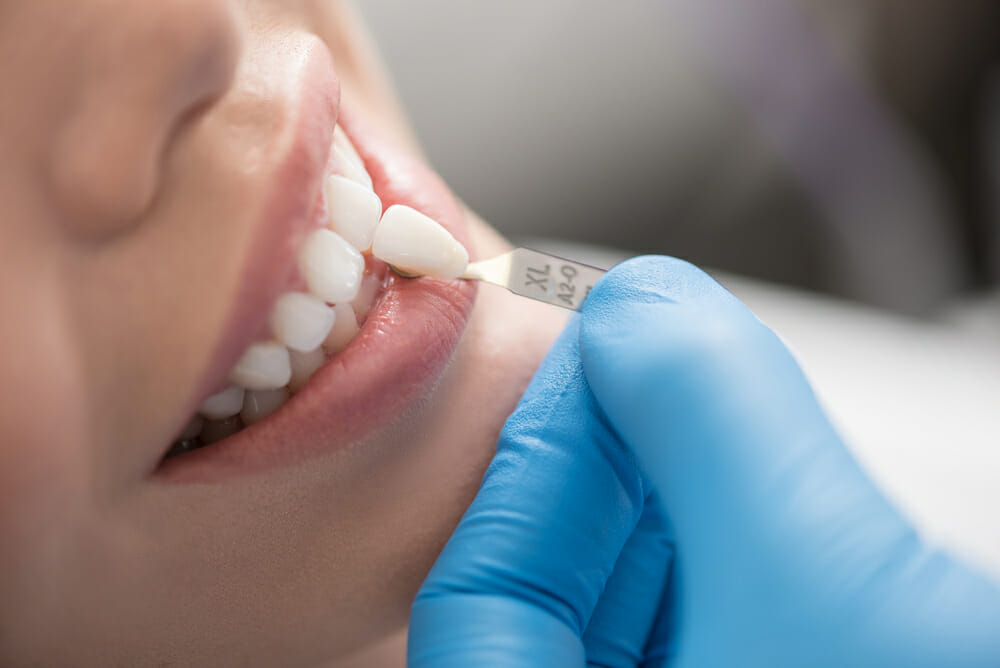While avoiding serious dental problems is always best, dental crowns can help a patient with a significantly compromised tooth avoid having the tooth extracted. Whether a tooth is broken in an injury or has grown weak due to extensive tooth decay, a dental crown is designed to fit over the natural tooth, supporting its structure and restoring its function.
Although dental crowns are a common treatment option designed to preserve patients’ natural teeth, complications can still arise. If you have a dental crown, it’s important to know what these potential issues are and how to recognize a problem if one occurs.
Common Dental Crown Problems
Tooth Decay
Although crowns are placed to protect teeth, there is still a risk of tooth decay. If plaque and tartar are allowed to accumulate on the junction between the crown and natural tooth, it can put the tooth at further risk of bacterial growth and decay.
Additionally, this increase in bacteria can lead to gum problems like gingivitis and periodontal disease.
Sensitivity
Before a crown can be placed over a tooth, the natural tooth has to be reshaped to accommodate the crown.
During this process, the enamel is shaved down and the tooth’s dentin is exposed. If the crown does not completely fit over the entire tooth, some dentin might still be exposed at the gum line. This can leave the tooth extra sensitive to hot and cold temperatures.
If you experience sensitivity after getting a crown, schedule an appointment right away so that our dentist can ensure your crown fits properly and that the tooth’s nerve system hasn’t been disturbed. We can also provide you with a treatment to seal the tooth’s dentin and mitigate sensitivity.
Allergic Reaction
Dental crowns are made from several different materials including zirconia (meta-free crystal), various metals, porcelain, resin, and more.
While it’s not extremely common, some people can be allergic to these materials – especially metals. If a patient has an allergy, they could experience an allergic reaction after a crown has been placed.
Bite Problem
Our dentist always takes impressions and images of a patient’s teeth before ordering and fitting a dental crown to ensure a good fit and feel. However, if your crown doesn’t seem to fit quite right or feels abrasive when you bite down, then it’s important to schedule an exam.
Any malocclusion can lead to excessive wear and tear on the tooth’s neighboring teeth. If for some reason your new crown does not feel exactly right, contact us right away. This type of issue can be easily avoided with a good fit, but it can also be resolved if it occurs.
Chipped Crown
As new materials are developed for manufacturing dental crowns, they are becoming stronger and more resistant to chipping. However, crowns that are comprised entirely of porcelain that’s not supported by a metal interior can become chipped.
Depending on the size of the break, our dentist might be able to repair a chip with a regular dental filling like you would get if you had a cavity. A larger chip might result in the entire crown needing to be replaced.
You can prevent chips by avoiding chewing on ice or other hard objects.
Loose Crown
It’s not common to experience a loose crown right after placement. However, over time, the cement that holds a crown in place can fail, causing the crown to loosen or dislodge entirely.
If you notice that your crown feels loose, schedule an appointment right away. If your crown dislodges entirely, keep the crown and bring it with you to your dental appointment. As long as the crown hasn’t been damaged, our dentist can likely re-cement it and pop it right back over your tooth.
Gum Irritation and/or Recession
A dental crown can potentially irritate the neighboring gum tissue, leading to inflammation and also gum recession which can cause pain and sensitivity.
You can avoid irritation and prevent gum recession by carefully following the aftercare instructions provided by our dentist.
Maintaining good oral hygiene with regular brushing and flossing also helps the gum tissues stay healthy, preventing them from receding. Additionally, keeping the area around your new dental crown clean using a water flosser can also be of great benefit to your gum tissues.
How to Avoid Issues With Your New Dental Crown
Once your new dental crown has been placed, focus on practicing good oral hygiene to avoid developing oral health problems that can lead to issues with your new crown.
Additionally, pay close attention to how the crown feels inside your mouth. If you notice any pain, sensitivity, or discomfort in or around your tooth, you should schedule a follow-up appointment right away, so our dentist can examine the crown and resolve any issues you might be experiencing.
To learn more about caring for a new dental crown or to schedule an appointment, we welcome you to contact Dentistry of West Bend today.


Recent Comments